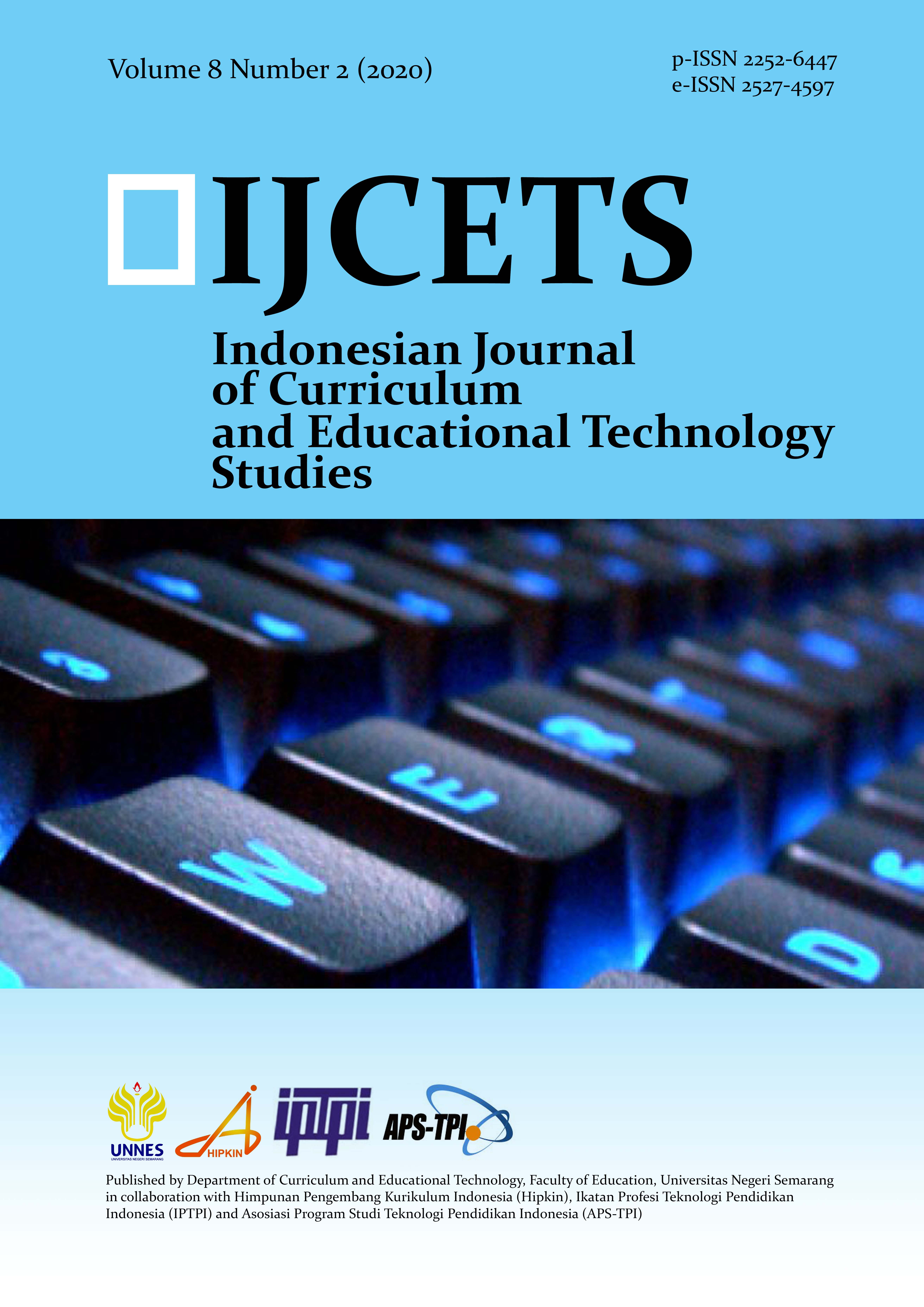Abstract
Dear readers and contributors.
First of all, thanks to all of the authors who contribute to the second volume in the end of this year. We know that we are still in the middle of the Covid-19 outbreak throughout the world, including in Indonesia, but show must go on. However, it is our duty and responsibility as one of the epistemic communities to keep on the track to publish the articles, not only for the sake of the knowledge, but also to inspire the readers—especially the educators throughout the world—to solve their learning barriers amid this pandemic time.
In this volume we have articles from authors across the globe, i.e. Odewumi and Falade et al. from Nigeria, Cahapay from Philippine, Mengistu et al. from Ethiopia, and Charli et al. and Tathahira et al. from Indonesia. All of the articles covering two major concern of our journal on Curriculum Studies and educational technology.
Odewumi’s article illustrates the use of one of the technological equipment to facilitate the students to learn creative arts subjects in Nigerian junior secondary school. Though the context of the research is in Nigeria, but the discussion and result of the research could be generated and inspire the readers across the globe, especially related to the basic principles of how to decide the appropriate learning media to facilitate and optimize students’ achievement. Another article by Nigerian scholars, Falade et al., talking about the lecturer’s perception toward the use of Google Application for Education (GAfE). By considering that Google now is one of the largest companies that have had a huge impact on education, it is useful to consider the Falade’s et al. finding about the positive adoption of the lecturers toward the application.
The next two article propose theoretical discourse on Curriculum Studies. First by Mengistu et al. who discussing the Schwab’s crisis in the field of curriculum related to the curriculum development and implementation in Ethiopia. Secondly by Cahapay, in his article he is trying to revise the function of curriculum theory in order to give some theoretical basis for the development of the Null Curriculum. The path of these two articles is different from the articles in the previous volume that more concern on the curriculum implementation. In the next volume we hope such articles that concern on theoretical domain of the curriculum will increase, because we believe that one of the ultimate goals of the scientific journal is producing such theories as a proof that the publication has huge contribution to the knowledge production.
Two authors from Indonesia Charli et al. and Tatharira et al. concerning on two different issues, i.e. teaching model and students’ personalities and the implementation of online learning in this Covid-19 outbreak. The first topic is general and the former more focused to the current phenomenon and problem in education on how to face the Covid-19 outbreak. The finding of the first article by Charli et al. contribute to the previous research that students’ personalities and the appropriate teaching models affect the students’ academic achievement, and the second article reveals several basic information in the implementation of online learning in this pandemic time, e.g. the most preferable applications choosen by the teachers and students, the most and common learning barriers faced by the students and teachers, etc. We hope this finding will enrich the other finding in the implementation of online learning, because it is still a major teachers’ & students’ problem since in the early 2000 when the Covid-19 hit Indonesia.
The last, book review by one of our editors complements this publication by giving new introduction especially for the Indonesian readers related to the idea of “Powerful knowledge†proposed by such curricular theorists under the social realist view, e.g. Rata, Barrett, More, and Young. We hope book review rubric in IJCETS will give the readers more information related to the basic and current references on both field of studies, Curriculum Studies and educational technology. See you all in our next volume in 2021.
Semarang, November 2020
Editor -In-Chief
